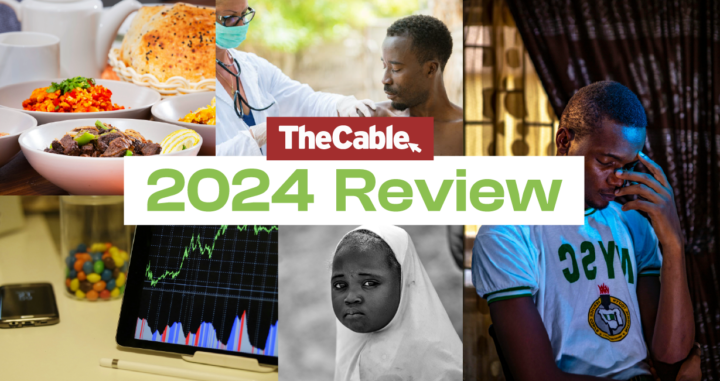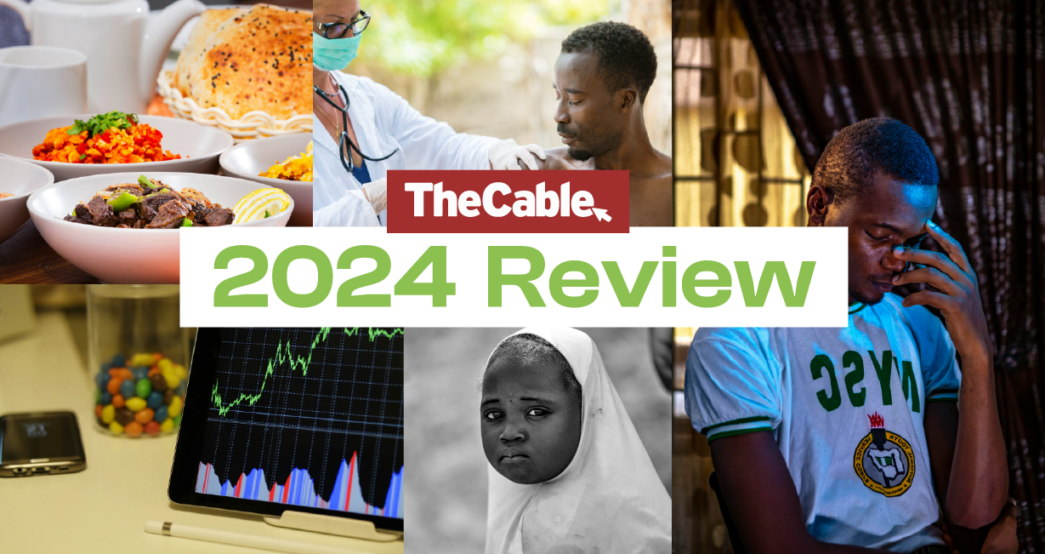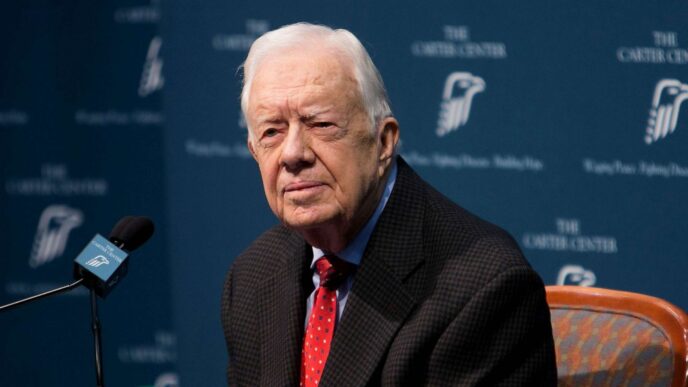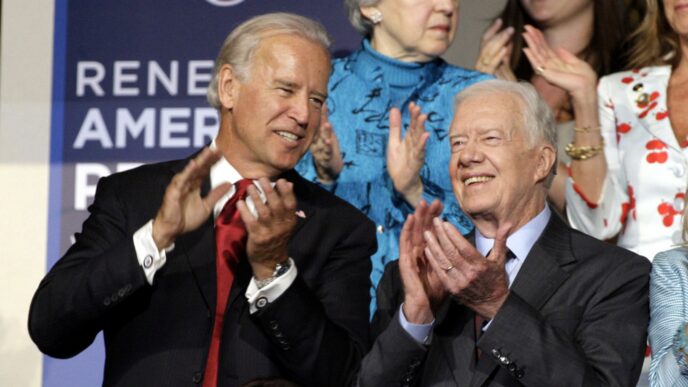In 2024, data from the National Bureau of Statistics (NBS) offered crucial insight into the performance of Nigeria’s economy. From GDP growth to health challenges, the reports painted a picture of the country’s progress and struggles amid a myriad of policy reforms envisioned as a compass for navigating the economic turbulence.
While the reforms, initiated to address fiscal imbalances also introduced new challenges, the NBS reports were pivotal in understanding how households, industries, and states adapted to changing conditions.
Here is a review of some of NBS’ reports for 2024.
‘GDP RATE GREW BY 3.36% IN Q3 2024’
Nigeria recorded a 3.46 percent growth rate in its gross domestic product (GDP) during the third quarter (Q3) of 2024, marking an improvement from 3.19 percent in Q2 2024 and 2.54 percent in Q3 2023.
Advertisement
According to the NBS’s GDP report published in November, the growth was largely driven by the services sector, which grew by 5.19 percent and contributed 53.58 percent to the aggregate GDP.
The nominal GDP for the quarter was N71.13 trillion.
The nominal GDP is adjusted for inflation while the real GDP is adjusted. Both are crucial indicators of economic performance.
Advertisement
TRADE SURPLUS OF N5.81 TRILLION IN Q3 2024
Nigeria recorded a trade surplus of N5.81 trillion in Q3 2024, as reported in the NBS’s “Foreign Trade in Goods Statistics” released in December.
Total exports stood at N20.48 trillion while imports amounted to N14.67 trillion.
The figure represented an 81 percent increase in total merchandise trade, which grew from N19.38 trillion in Q3 2023 to N35.16 trillion in Q3 2024.
Crude oil remained the dominant export product, underscoring Nigeria’s continued reliance on oil revenue.
Advertisement
‘CAPITAL IMPORTATION DROPPED BY 51.9% IN Q3 2024’
Capital importation into Nigeria fell significantly, dropping to $1.25 billion in Q3 2024 — a 51.9 percent decrease from the $2.6 billion recorded in Q2 2024.
Foreign portfolio investments (FPI) accounted for the majority at $899.31 million (71.79 percent), followed by other investments at $249.53 million (19.92 percent), and foreign direct investment (FDI) at $103.82 million (8.29 percent).
‘NIGERIANS PAID N2.2TRN AS RANSOM TO KIDNAPPERS’
A controversial NBS report revealed that Nigerians paid N2.23 trillion as ransom between May 2023 and April 2024.
According to the bureau’s ‘Crime Experience and Security Perception Survey Report,’ an estimated 51.89 million crime incidents were recorded across households during this period.
Advertisement
Following its release, the organisation’s website was hacked, with media reports claiming that the statistician-general of the federation, Adeniran Adeyemi, was arrested and questioned by the Department of State Services (DSS).
The bureau denied the reports and described the hacking incident as suspicious.
Advertisement
Reacting to the website hack, former Vice-President Atiku Abubakar said the incident was a reflection of broader governance issues under President Bola Tinubu’s administration.
‘PRIMARY HEALTH FACILITIES HAVE ONLY 34% OF ESSENTIAL DRUGS’
The statistics body, in its national health survey published on December 12, said essential drugs remain largely unavailable in Nigeria’s health facilities.
Advertisement
The NBS said only 34.3 percent of essential drugs in primary health facilities (PHFs) were available and unexpired, while secondary health facilities recorded a slightly better availability rate of 50.6 percent.
‘UNEMPLOYMENT RATE DECREASED TO 4.3% IN Q2 2024’
The NBS reported a 4.3 percent unemployment rate for Q2 2024, a decrease from 5.3 percent in Q1 2024.
Advertisement
However, the methodology adopted in the calculation of unemployment drew criticism from the Nigeria Labour Congress (NLC).
Chris Onyeka, the NLC’s national assistant general secretary, dismissed the report as a “voodoo document” that failed to reflect the realities of factory closures and widespread job losses.
‘65% HOUSEHOLDS UNABLE TO AFFORD HEALTHY MEALS’
The growing crisis of food insecurity in Nigeria left many households struggling to meet basic nutritional needs in the outgoing year.
According to the NBS’s ‘General Household Survey Panel (Wave 5)’, financial hardship prevented 65 percent of households from affording healthy meals.
Furthermore, 71 percent of households reported being significantly affected by rising prices of major food items, with the most severe food shortages occurring between June and August 2024.
To cope, nearly half (48.8 percent) of Nigerian households resorted to reducing food consumption.
Add a comment











